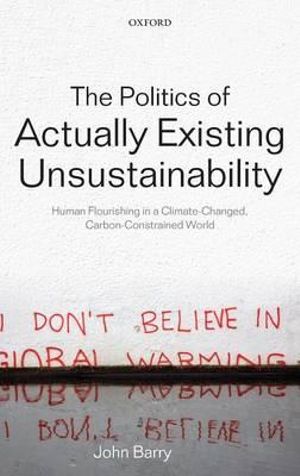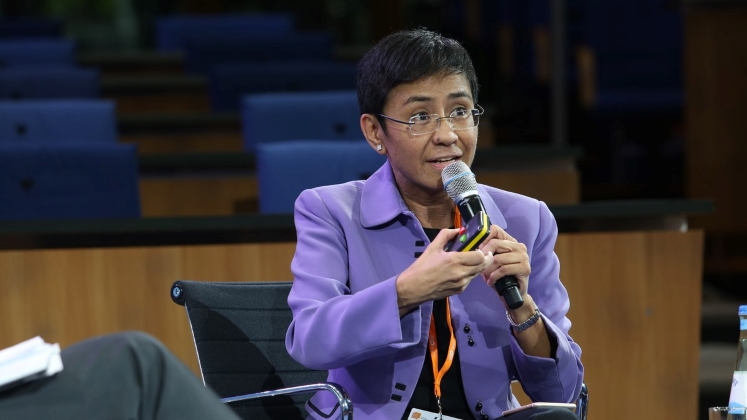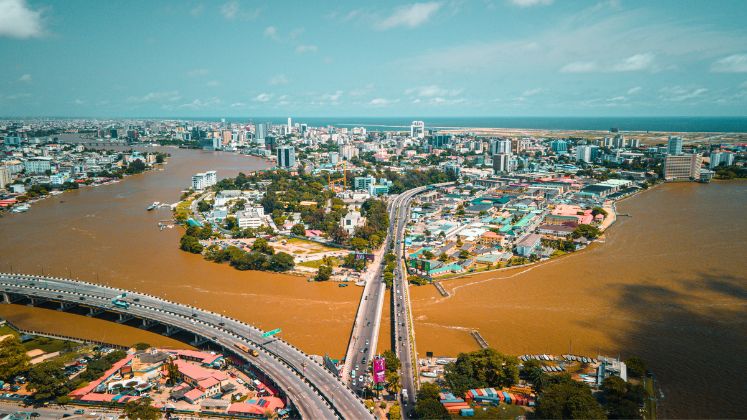In The Politics of Actually Existing Unsustainability, John Barry locates the causes of unsustainability in dominant capitalist modes of production, debt-based consumerism, and the imperative for orthodox economic growth. Barry attempts to offer a green political economic alternative which could replace economic growth with economic security, and outlines and develops an account of ‘green republicanism’. Reviewed by Roger McCormick.
 The Politics of Actually Existing Unsustainability: Human Flourishing in a Climate-Changed, Carbon Constrained World. John Barry. Oxford University Press. February 2012
The Politics of Actually Existing Unsustainability: Human Flourishing in a Climate-Changed, Carbon Constrained World. John Barry. Oxford University Press. February 2012
Many commentators have characterised the financial crisis as a crisis of capitalism. Although it must be debatable whether the causes of the crisis (and there is no single cause) are all attributable to “the capitalist system”, there can be no denying that the ongoing agonies of the financial system, from the creaking euro to the multi-billion dollar bills being clocked up by banks for financial irregularities, suggest that the problems we currently face have a systemic air about them.
The interesting question, that the appearance of books like this one poses, is whether the lack of confidence in our current system, and the so-called “classical” approach to economics that underpins it, now offers an opportunity for a return to the once-fashionable ideologies associated with Marxism. You may have thought that such “hard-left” thinking disappeared with Che Guevara posters and tee-shirts (now just a fashion item), the de-bunking of “trendy lefties” such as the fictional Howard Kirk of Malcolm Bradbury’s “The History Man” (so effectively skewered in the televised version), the fall and failure of “old Labour”, clause 4 and Michael Foot and the collapse of the Berlin Wall and the Iron Curtain. Thatcher-Reagan “won” and the Marxists and the Scargillite miners lost, right? So, bring on Blair and New Labour, keep the PFI flying and the Washington consensus alive and let’s salve our collective, coalition-led conscience with vague aspirations for the “Third Way”, “fairness” and the creation of “The Big Society” and accept the decline of political discourse to monosyllabic grunts about change, hope, growth, choice……With all this supplanting the old left-right arguments, can there be any hope for Kirk’s return?
Well, maybe. The ongoing crisis is providing opportunities for a number of political ideas to find a fresh impetus, from secessionist movements all around Europe, some worryingly quasi-fascist tendencies in Greece and, if this book is anything to go by, a resurgence of “green economics” allied to some radical green political ideology. Marx might just make a comeback If he can bear to adopt a green mantle and become an eco-warrior. As so many have remarked (in various political contexts), it’s a shame to waste a good crisis.
The unwieldy title of the book has a sub-title: “Human Flourishing in a Climate-Changed, Carbon-Constrained World” and human flourishing is a recurrent theme of the book, representing, in effect, the green alternative to economic growth as a policy target. The author is Reader in Politics and Associate Director at the Institute for a Sustainable World, Queen’s University Belfast. He tells us (with a welcome touch of humour) that he is from the “Marxist-Lentilist wing of the green movement.” He has some interesting theories to propose. He regards himself as a “social theorist” rather than a political philosopher or theorist but there is a great deal of politics (especially so-called “green republican politics”)in this book. The title reflects the author ‘s wish to recast “green political theory” as “a politics of actually existing unsustainability rather than a politics for (future) sustainability.” The analysis of the existing unsustainability should take priority over analysis of sustainability and thus the “first aim” of green politics should be to identify and reduce existing unsustainability …as a precondition to setting out down the road to sustainability itself.
The book has nine chapters, with the meat of the political argument coming in chapters 5-8. The early chapters devote a great deal of attention to questions of “vulnerability”,”resilience” and “transition” (and some related topics). Vulnerability has, we are told, a central place in green thinking because it is fundamental to “what it means to be human”. Modern societies have forgotten how much we depend on nature and seem to think they can “overcome” it, it is argued. (Victims of the “superstorm” Sandy may perhaps beg to differ). We tend to hide away (or “sequestrate”) those aspects of life that upset us, such as madness, criminality, sickness and death and the “slow decline from beauty, fitness, mental agility” (all part of “nature”, the author points out) and, as a result, we have difficulty facing up to social duties such as the need to care for the elderly and delude ourselves on a range of issues believing, for example, that there are “no nature-imposed “limits to economic growth” or “personal consumption.” “Further, when bad things happen (the author refers to Hurricane Katrina) the consequences are not distributed fairly or evenly. Greater honesty about our vulnerability can, it is argued, “enhance life affirming and life-protecting goals…”
Resilience is also closely linked to the human condition, requiring adaptability and diversity and has “constituent elements” such as flexibility and creativity. We have to accept that we will experience shocks and stresses and our political and economic systems need resilience to cope with them. (The author evidently doubts that the capitalist system has this quality).
Transition features in the book in the context of transition to a “post-carbon sustainable world”. Much is made of the “Transition towns movement”. This is described as a “growing network of towns and villages and local communities in the UK, Ireland and beyond, preparing themselves for the twin challenges of “peak oil” and “climate change””. (An internet search by your reviewer revealed that it’s a big thing in Totnes, apparently). The people behind these movements are identified by the author as “resilience pioneers”.
The book has no time for conventional “neoclassical/bourgeois economics” which is characterised as a “form of ideology” and “a modern form of “myth””, unable to cope with contemporary twenty-first century sustainability problems. This “neo-liberal” approach to economics is not “fit for purpose” and “makes greed good and “insecurity” necessary”. It also makes “scarcity ever present even amidst affluence.” and “supports the prevailing capitalist status quo”. “Consumerism” is roundly condemned; and it is time to stop worshipping the god of “growth,” it seems (although the author supports growth in “education, public health, public transport” and “subsidized organic farming”).
The author gleefully refers to conventional economists’ embarrassment over the “British Queen’s” question (“why did no one predict the financial crisis?”) and sees this as evidence of their general uselessness. Other features of modern economic life that would have to go would seem to include the limited liability company (there is far too much “corporate power” and a “green republican position” would involve removing “unjustified, unwanted and arbitrary forms of corporate domination”)and private ownership of real property, which is thought to be “simply inappropriate for the modern ecological age”.
So….this is heady stuff. The author rounds things off with what is, in effect a battle cry:”…the politics of sustainability is ultimately about choices to live in a different type of society, not some brief public consultation about how to “green” business as usual and our existing societies, And this is a politics of resistance and struggle for transition and transformation not the continuation of what we currently have.”
Whatever one thinks of the basic political message (and it hard to see how non-Marxists would warm to this book) there are a number of weaknesses in the work. Perhaps the two most significant are, first, that no explanation is offered as to how we would get to the author’s “promised land” from where we are now and, secondly, no ideas are provided as to how the important decisions would be taken in the new eco-society. Transition, is hardly likely to come about as a result of conventional democratic debate. How will it happen? Revolution? And, if we get there, who would decide the basic issues as to (for example) who gets to live in what kind of house, who gets what kind of work, who is entitled to what kind of “life’s little luxuries” (which, generally, the author seems to frown upon). One has the uncomfortable feeling that some kind of Big Brother entity is lurking in the background… but we can only speculate.
As regards the general style of the work, far too much space is given to the citation of views of others and not enough to what the author himself thinks. At times, one is left weary of the seemingly endless references, PhD thesis style, to other writers — which are often made at the expense of cluttering up the flow of what, at best, is an argument that is not that easy to follow. Unkindly, one is sometimes left with the feeling that there is more concern to demonstrate how much the author has read than to articulate a compelling case for the changes being advocated.
But, on a more positive note, the book does at least ask some questions about conventional economic thinking that seem worth asking (whatever one thinks of the author’s answers). We are coming to the end of year 5 of the Crisis and conventional thinking –which did not help us avoid it — is not helping us find a way out. And climate change remains an unsolved problem. “Growth” is not a policy (although it might be the result of one) and it is becoming tiresome to hear so much “motherhood and apple pie” talk (usually little more than sound-bites) emanating from those who should have the courage to show some leadership. Nor is it at all clear that a few positive decimal points of GDP will lead us to the sunlit uplands once again. It is right to be sceptical, to ask awkward questions and to draw attention to the unsustainability of the mess that we find ourselves in. Your reviewer, however, would prefer to look for other solutions than those offered in this book.
——————————————————————————————-
Roger McCormick is the Director of the Sustainable Finance Project at London School of Economics and Political Science, and a Visiting Professor at LSE. He is the author of Legal Risk in the Financial Markets (Oxford University Press, 2nd ed. 2010). He retired from full-time private legal practice in 2004, having practised law in the City of London for nearly thirty years. Roger is also the Director of the LSE Conduct Costs Project blog. Read reviews by Roger.







